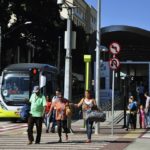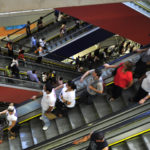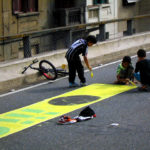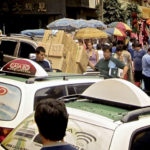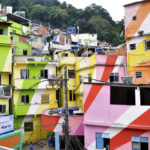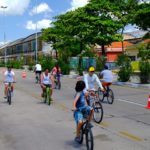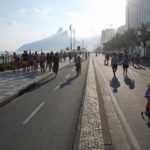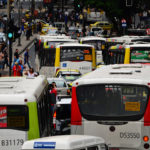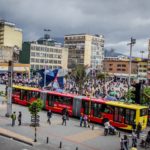Posts tagged with 'Brazil'
Cities around the world face the challenge of creating safe public spaces for women. In Brazil, sexual assault is a prevalent problem. Alarmingly, a survey by the Instituto de Pesquisa Econômica Aplicada, a major Brazilian research institute, found that 26% of ...

The BRTData.org global database of bus rapid transit (BRT) data has recently been updated, and the increased number of BRT lines, as well as the length of those lines, reflects the commitment of cities around the world to provide high-capacity ...

World Cup fans may be focused on the games, but critics are paying attention to another aspect of the event—its price tag. Brazil spent billions of dollars on World Cup infrastructure, and many are understandably questioning the long-term benefits these ...

This article reports on presentations made by Philip Yang, President, URBEM (Urbanism and Urban Studies Institute for the city of Sao Paulo), Jianming Cai, Professor at the Institute of Geographic Sciences & Natural Resources Research (IGSNRR), Chinese Academy of Sciences (CAS) and Alexandros Washburn Founding Director, Center for ...

Not in Brazil for the World Cup? No problem! Sure, you can catch the games at your favorite local sports bar, but did you know that you can experience the atmosphere of the city streets, as well? Google Street View ...

For decades, ‘work’ meant spending an eight-hour chunk of your day in an office, industrial facility, or at school. Workers needed to physically occupy a given location in order to do their jobs. Because of this, the trips to and ...

Cycling is already an important part of daily life many of Brazil’s urban residents. To grow the country’s cycling culture as well as provide better conditions for users, the new “Manual of Projects and Programs for Encouraging Cycling in Communities” ...

Thank you, TheCityFixer! With the power of your vote, TheCityFix Brasil was selected for the second consecutive time as the best sustainability blog in Brazil by TopBlog. Different from previous TopBlog awards, this is the first time TheCityFix Brasil has ...

Cardiovascular disease is one of the leading causes of death worldwide, killing as many as 17 million people each year. Sedentary, inactive lifestyles are a major contributor to this rise in cardiovascular disease – stress, pollution, poor diet, and lack ...

Traffic safety improvements in Europe are being hailed as one of the greatest advances for the region in the past decade. Europe should be proud of its success: since 2010, there have been 17% fewer deaths on the continent’s roads. ...

Earlier this month, the government of São Paulo, Brazil, and METRÔ-SP published the results of the 2012 Mobility Survey. The data is heartening in many ways, for in a city where cars were once seen as symbols of wealth and ...

Worldwide, people are moving less – taking their car, abandoning walking and bicycling, or perhaps unable to visit a neighborhood park or play space because it may not exist. In real numbers, as outlined by the Designed to Move campaign, physical activity ...

Raising awareness and tapping into public sentiment is essential to making inroads against any major threat to public health. October, for example, is breast cancer awareness month and in November we remember all those lost to prostate cancer. Now, the ...

Belo Horizonte, one of the host cities for Brazil’s 2014 World Cup, is using its newfound spotlight to showcase its growing transport system. The city launched its MOVE bus rapid transit (BRT) system this past Saturday, March 8, 2014, which ...

When a new urban redevelopment scheme is proposed, developers and city officials typically take three primary concerns into account. One: how the development will be financed, and in turn, what economic benefits it can bring. Two: urban infrastructure’s environmental impact ...

Page 12 of 19« First...111213...Last »







